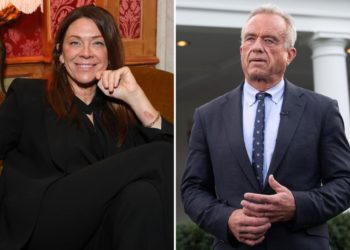For those who have followed the furious debates over free speech for the past decade, hearing right-wing commentators laud a “culture of consequences,” as if it is something they just invented, brings to mind the Yiddish word chutzpah. For years, people on the left have insisted that “freedom of speech does not mean freedom from consequences,” including calls for professors to be disciplined or for television hosts to be fired. The right has called such demands the overheated frenzy of a politically correct, self-righteous mob.
Now, champions of Charlie Kirk argue that the suspension of late-night host Jimmy Kimmel and the firing of journalists and academics for voicing opposition to Mr. Kirk’s views are a matter of just deserts and no affront to free speech. The turnabout offers dispiriting evidence for Nat Hentoff’s 1992 book, “Free Speech for Me — But Not for Thee.” The columnist’s point was that there are few, if any, true believers in free speech as a societal value untainted by the stain of politics. A government approved, ideologically driven “culture of consequences” for disfavored speech will further erode the already precarious place of free speech as an American constitutional right and cultural value.
Of course speech carries consequences. In authoritarian societies, speech is not free precisely because voicing dissent can lead to arrest, jail or torture. No defender of free speech could justify such draconian reprisals. By contrast, being booed by an audience or chastised in a comments section are consequences for speech we accept as part of the rough-and-tumble of an open society. Having no consequences for speech allows hatreds, falsehoods and quackery to overtake reasoned discourse, a circumstance that characterizes our current social media landscape. The question is not whether consequences should flow from expression, but rather: what are they, why they are being imposed, by whom and with what effect?
A great deal depends on context. A monologue on late-night television is not the same as witness testimony in court. Hyperbole is endemic to satire; to impose strict fact-checking requirements on comedians would be like subjecting modern dance to the formalities of ballet, destroying the form in the process.
In New York City in 2017, a math teacher at a private high school was fired for raising his arm at an oblique angle during a geometry class and, upon contemplating it, saying “Heil Hitler.” Parents and administrators were horrified at what appeared to be a nakedly antisemitic remark. Students, including some who had been in the room, rose to the teacher’s defense, explaining they understood that the instructor, a descendant of Holocaust survivors, was clumsily blurting what had come to mind rather than voicing hostility. The teacher was reinstated; his intent and how his speech was received mattered.
On our accelerating social media treadmill, people are incentivized to respond to speech before taking the time to understand it. In the internet age, where retorts live indefinitely, misinterpretations are virtually impossible to undo.
Thank you for your patience while we verify access. If you are in Reader mode please exit and log into your Times account, or subscribe for all of The Times.
Thank you for your patience while we verify access.
Already a subscriber? Log in.
Want all of The Times? Subscribe.
The post The Dangers of ‘Consequence Culture’ appeared first on New York Times.




